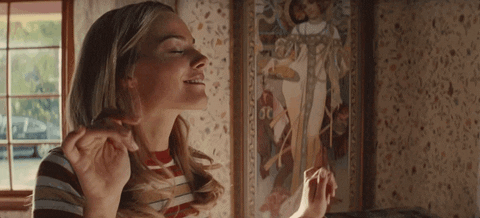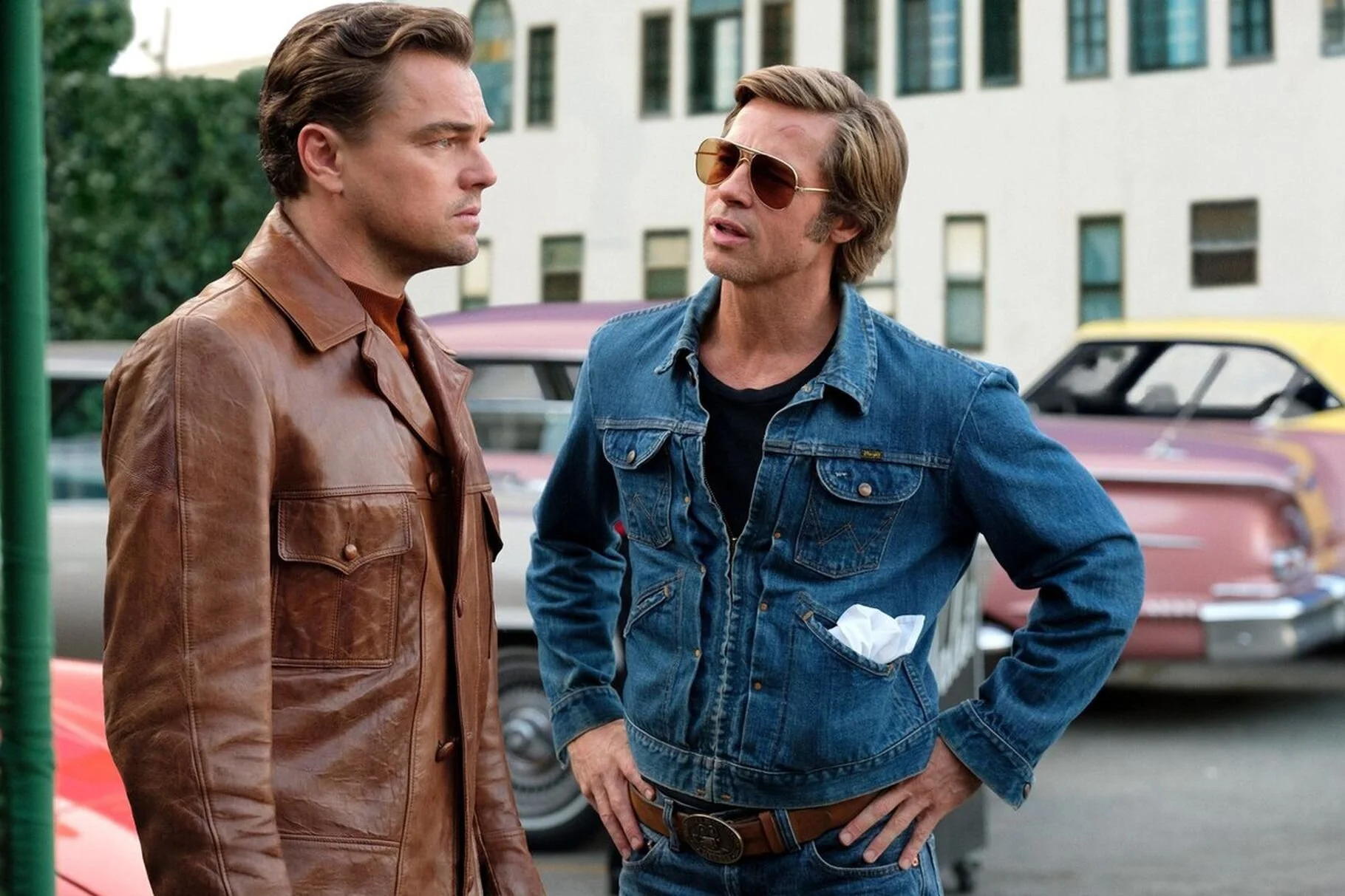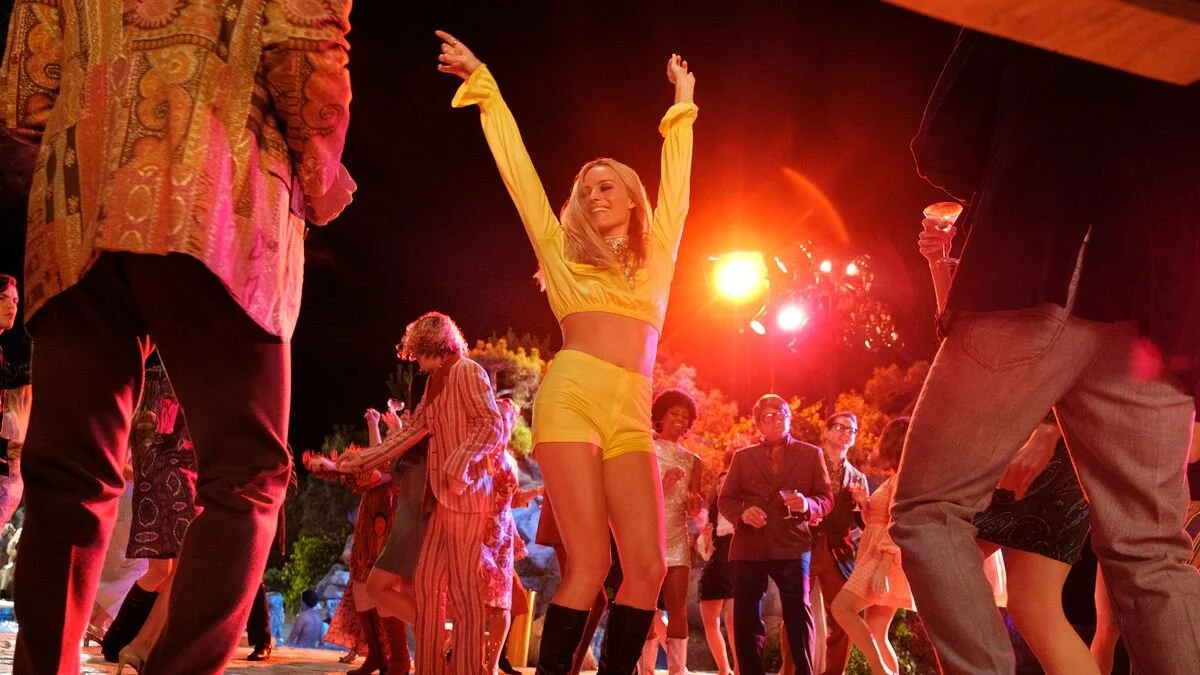Why Once Upon a Time… In Hollywood’s Ending is Brilliant
by Tyler Christiansen
Ever since Reservoir Dogs (1992), Quentin Tarantino has been a formidable presence in Hollywood. Love him or hate him, you cannot deny his passion for film and his desire to push boundaries. Some say he’s stretched it too far through rewriting history and gratuitous use of violence. Whilst he does use violence to an almost hilarious effect in some of his work, films are about the make-believe. It’s cartoonish because it’s not real. Anything can happen in a film and Tarantino recognizes this; if he wants to blow Hitler up in a cinema, he can. If he wants to have an ex-slave blow up plantation owners, he can. This is, of course, Tarantino dreaming and wishing this was how things actually panned out. The real world is always unfair and cruel, but films are safe havens for us to escape to. Once Upon a Time in Hollywood continues this trend in the most delightful but heavily melancholic way possible.
Let’s just get right into it then: Rick Dalton (Leonardo DiCaprio), an aging Hollywood star and Cliff Booth (Brad Pitt), his stuntman, have just returned home from shooting “Spaghetti Westerns” in Italy. This is the end of the road for the two men, who are going in different career directions after their last “drunk” together, as Kurt Russell kindly puts it in the film’s voice over. Living next door to Rick is Sharon Tate and her husband, Roman Polanski, who has just come off from making one of the great horror films, Rosemary’s Baby (1968). Tate and Polanski symbolize all Rick wants in life; to be in the next Polanski film and, subsequently, to be in the Hollywood inner circle. Having resorted to being a guest star on a couple television shows, Rick isn’t the top dog anymore and is learning to cope with the changing industry, which Polanski and Tate represent. Their house is the fortress Rick seemingly can never enter.
Having seen the film, you know that Tate and everyone in the house survived. In fact, they weren’t even present during the film’s climax. Instead of going into Tate’s house, the Manson Family members break into Rick’s house, where Rick is in the swimming pool while Cliff is trippin’ on an acid cigarette. Then the bloodbath begins, but not in the way the history books tell it.
It’s interesting how Tarantino keeps Tate and the others away from this scene; Tarantino doesn’t want them to even be nervous. As the director, he is playing God in the way he’s protecting them from their fate, as shown in the final shot of the film. Rick, having killed one of the members, is welcomed through the gate into the Tate/Polanski residence, the haven that has always eluded him. The camera cranes up and leans over to look down at the Tate/Polanski driveway. We see Rick, Sharon, Jay Sebring and the others introduce each other and hugging each other. As Brian Tallerico says in his review of the film on rogerebert.com, “Tarantino himself is the puppet master saying goodbye to his creations, all co-existing in a vision of blurred reality and fiction.” While a seemingly happy scene, it’s also extremely sad, considering what really happened. Hearing Sharon’s voice through the intercom in the driveway asking if Rick is “okay” is a sobering and moving touch.
If Rick is meant to represent “Old Hollywood” and Tate is “New Hollywood,” then the embrace at the end of the film suggests a coalition of the two. Tarantino is clearly nervous about the future of the film medium and I think this is his way of showing how the new digital age with streaming and instant access to films can coexist with the old-school way of doing things. Rick and Cliff killing the pseudo-hippies at the end of the film suggests a killing of the toxicity of society and embracing the good change, shown through the bright lighting and overall happy mood with Sharon Tate. Once Rick walks into the house with Sharon, his future is pregnant with possibilities and a hope that the two seemingly conflicting cultures can make room for each other. This is all, of course, wishful thinking by Tarantino, demonstrated through the fairytale title of the film. It might not happen in real life, but anything can happen on the silver screen.





